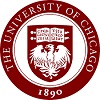Job Description
For more than a century, and across widely different cultures, film has been the primary medium for storytelling, for depicting and exploring the world, and for engaging and shaping the human senses and emotions, memory and imagination. We live in a time in which cinema, the theatrical exhibition of films to a paying public, is no longer the primary venue in which films are consumed. But cinema seems to survive, even as it is being transformed by television, video, and digital media; and these media, in turn, are giving rise to new forms of moving image culture.
At the same time, the goal is to situate the cinema (and related media) in broader contexts. These include the formation of visual culture and the history of the senses; modernity, modernism, and the avant-garde; narrative theory, poetics, and rhetoric; commercial entertainment forms and leisure and consumer culture; sexuality and gender; constructions of ethnic, racial, and national identities; and transnational media production and circulation, as well as the emergence of global media publics.
Students graduating with a Cinema and Media Studies major will be trained in critical, formal, theoretical, and historical thinking and analysis. The program aims to develop an ability to understand forms of cultural production in relation to wider contexts, as well as to foster discussion and writing skills. Students will gain the tools to approach today’s media environment from a historical and international perspective, and will thus be able to work within a changing mediascape.
This interdisciplinary program draws on faculty and courses from UChicago’s Departments of Anthropology, Art History, East Asian Languages & Civilizations, English Language & Literature, Germanic Studies, Music, Romance Languages & Literatures, Slavic Languages & Literatures, and South Asian Languages & Civilizations. The approach is to provide a balanced, rigorous framework within which undergraduates can analyze film and related media from a variety of historical, critical, and theoretical perspectives. UChicago’s Film Studies Center provides viewing facilities, film and video collections, and reference materials for on-site research and study. Screenings on campus and at the city’s museums and movie theaters add to the experience. After completing courses in film analysis and practice, students advance to upper-level work and also choose a cluster of three courses in a separate, related area, such as art forms and media other than film, photography, and video (e.g., the visual arts, digital media, architecture, literature, theater, opera, dance); cross-disciplinary topics or sets of problems (e.g., the urban environment, violence and pornography, censorship, copyright and industry regulation, concepts of the public sphere, globalization); subfields within area studies (e.g., East Asian, South Asian, African American, Jewish studies); or traditional disciplines (e.g., history, anthropology/ethnography, philosophy, psychology, linguistics, sociology, political economy).
Students in other fields of study may complete a minor in Cinema and Media Studies.


